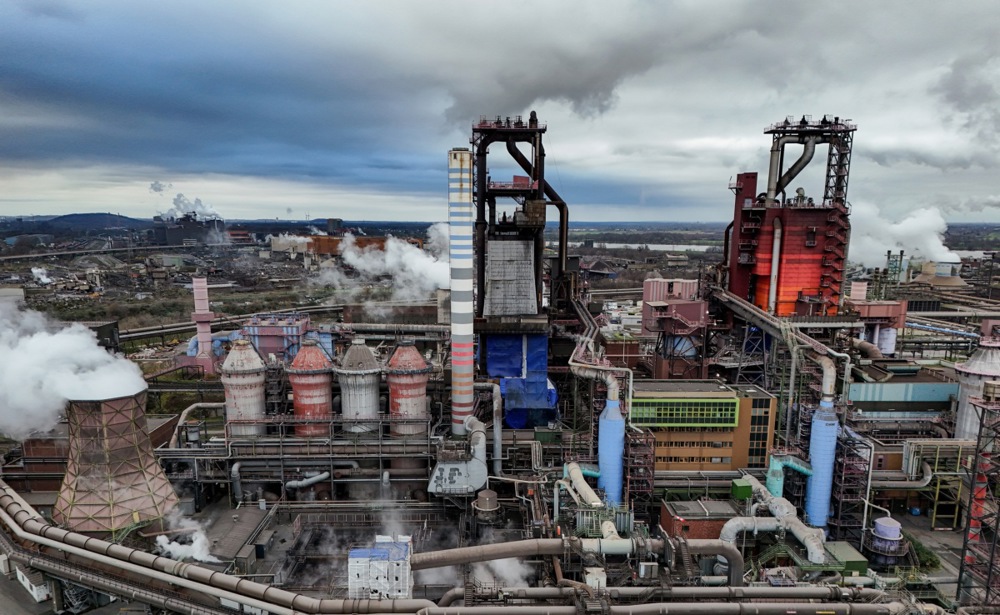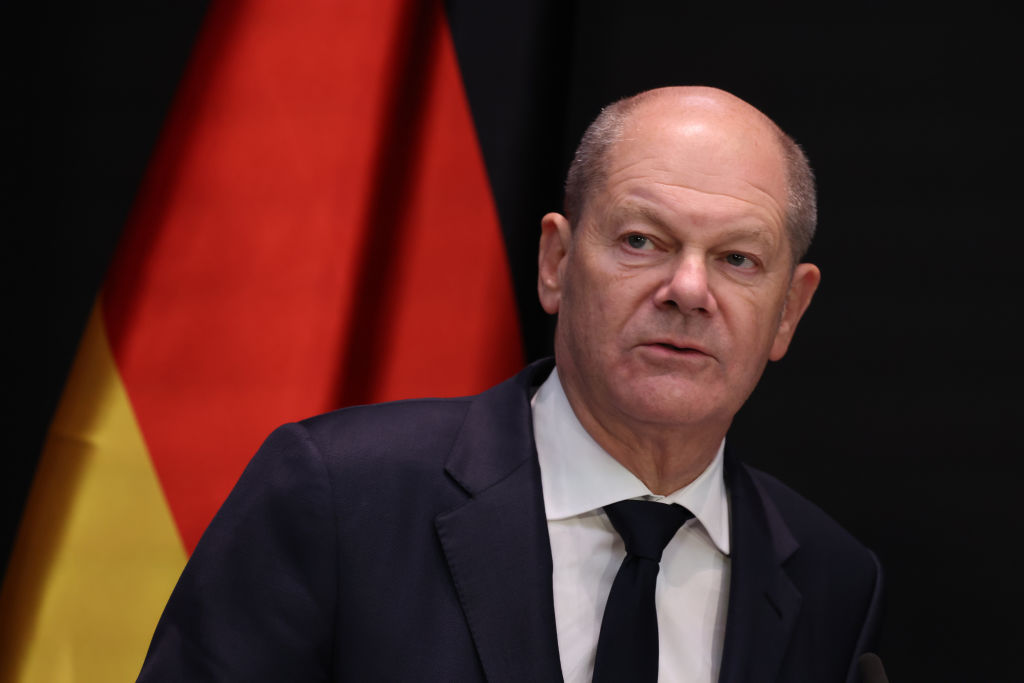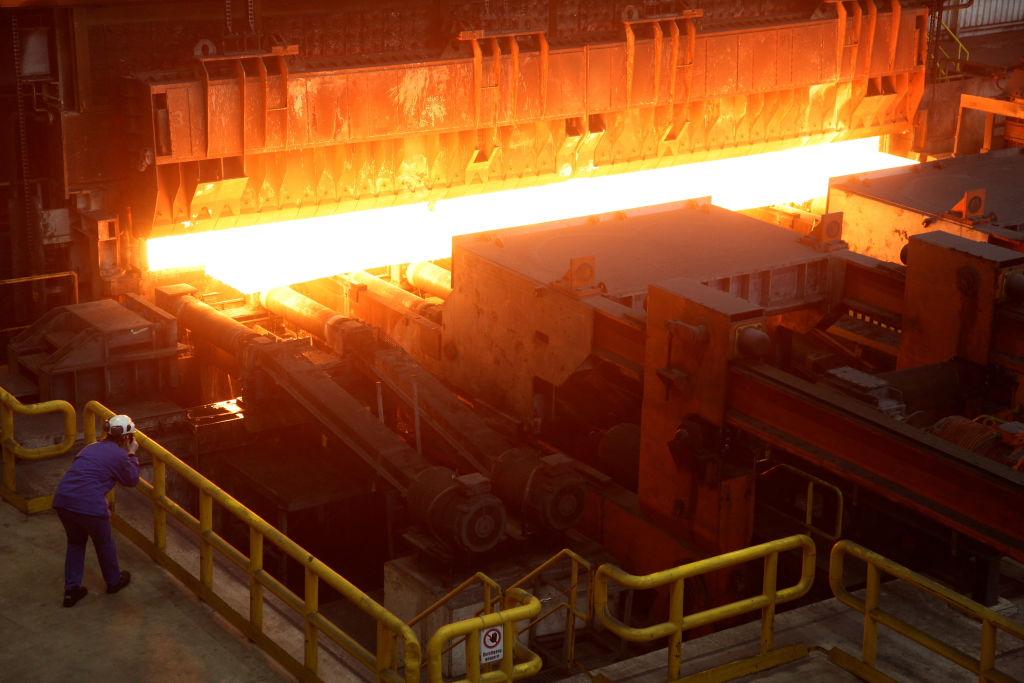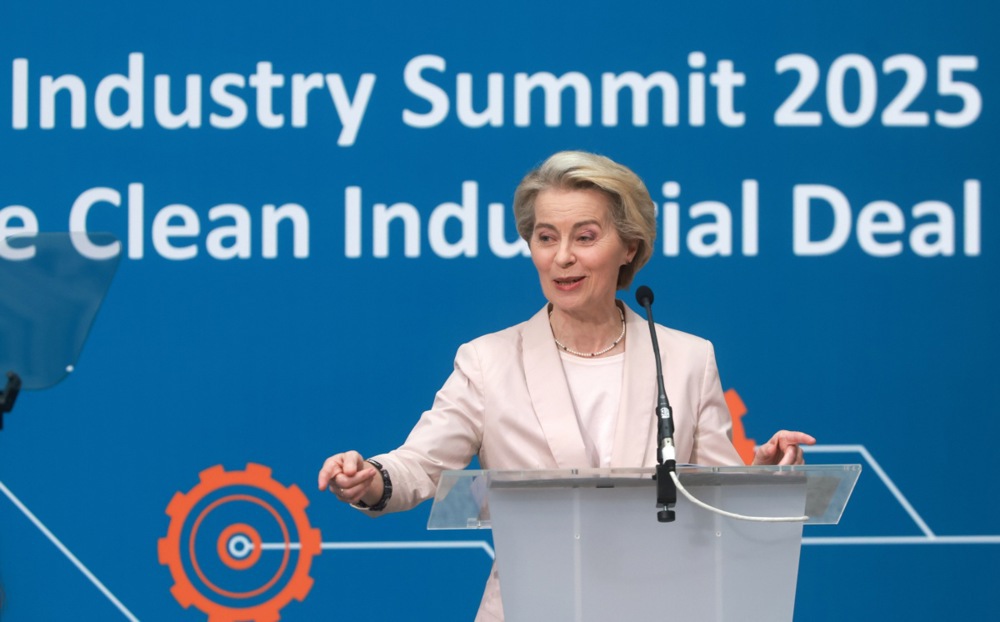Germany’s iconic industrial group Thyssenkrupp will be broken up and turned into a financial holding no longer producing steel.
According to a report seen by German media, the multinational planned to sell large parts of its current structure.
“At the end, Thyssenkrupp is virtually dissolved,” high-ranking sources from the company were quoted as saying.
After becoming a financial holding, staff numbers at its current headquarters would shrink from 500 to 100.
Further job cuts were planned in administration, where 1,000 people were currently still employed.
An insider told the newspaper Bild: “Only a parent company without content remained.”
Thyssenkrupp’s steel trading division, the brand’s historic core unit, would be sold to Czech billionaire businessman Daniel Křetínskýan.
The automotive supplier division was also to be closed or sold. “Only a hull remains in the best case,” a manager told Bild.
The plans still had to be approved by the supervisory board but: “Greater resistance is not to be expected – so it should go through that way,” the company said.
COMMENT: I witnessed Germany’s rapid recovery from World War II, which had transformed it into the envy of the Western World. When I look at Germany today, I feel a deep sorrow, writes David H. Miles. https://t.co/seAVS3erPQ
— Brussels Signal (@brusselssignal) April 15, 2025
According to internal calculations, about 70 per cent of the annual turnover of €35 billion would go with the loss of steel, shipbuilding and trade.
At its peak, Thyssenkrupp employed approximately 200,000 people. In 2025, that figure stood at around 96,000 and less than half were set to remain with the group.
It had already sold major divisions, including the Elevator Technology unit, in 2020, which alone accounted for around 53,000 employees.
The measures were part of Thyssenkrupp’s broader initiative to streamline operations and focus on core areas such as decarbonisation technologies and materials services.
Only the “Green Technologies” business area would remain intact.
Company insiders indicated they did not expect much protest from the German Government, despite the firm being a major employer in the region of North Rhine-Westphalia.
They based this opinion on a record of passivity in the past. “Why should that change now? They know all the facts,” one source reportedly remarked.
Thyssenkrupp was considered an iconic steel manufacturer due to its long history, technical innovation, and global influence in the steel and industrial engineering sectors.
It was one of the drivers of Germany’s industrialisation back in the 19th century.
The company was formed by the merger of Thyssen AG (founded in 1891) and Friedrich Krupp AG Hoesch-Krupp (founded in 1811), which both played major roles in European heavy industry, including rail, shipbuilding and weaponry.
Thyssenkrupp symbolised the strength of German engineering and industrial strategy but recently it had invested heavily in decarbonising steel, aiming to produce “green” hydrogen-based steel to meet European Union climate targets.
In a press release on the homepage of Thyssenkrupp, issued on May 26, after German media broke the story, it was confirmed that the company would restructure and drastically reform.
“The core of the plans is to gradually separate all business segments of Thyssenkrupp and open them up for third-party investment. With the initiated spin-off of a minority stake in thyssenkrupp Marine Systems and the planned 50/50 joint venture between Thyssenkrupp Steel Europe and EPG, important steps have already been taken in this direction,” the press release read.
“In the coming years, the Materials Services and Automotive Technology segments are also to be prepared for the capital markets and become independent as soon as the necessary preconditions have been met.”
It added that “the newly established Decarbon Technologies segment is also set to become independent in the future, in line with the expected upturn in the markets for green technologies”.
“The goal is to form a focused, agile, and realigned industrial group: Thyssenkrupp AG as the strategic holding company with strong, independent businesses.”
German steel major Thyssenkrupp released disappointing quarterly results on May 15 on the back of weak European steel demand. https://t.co/KAwYR0V5MV
— Brussels Signal (@brusselssignal) May 16, 2025





